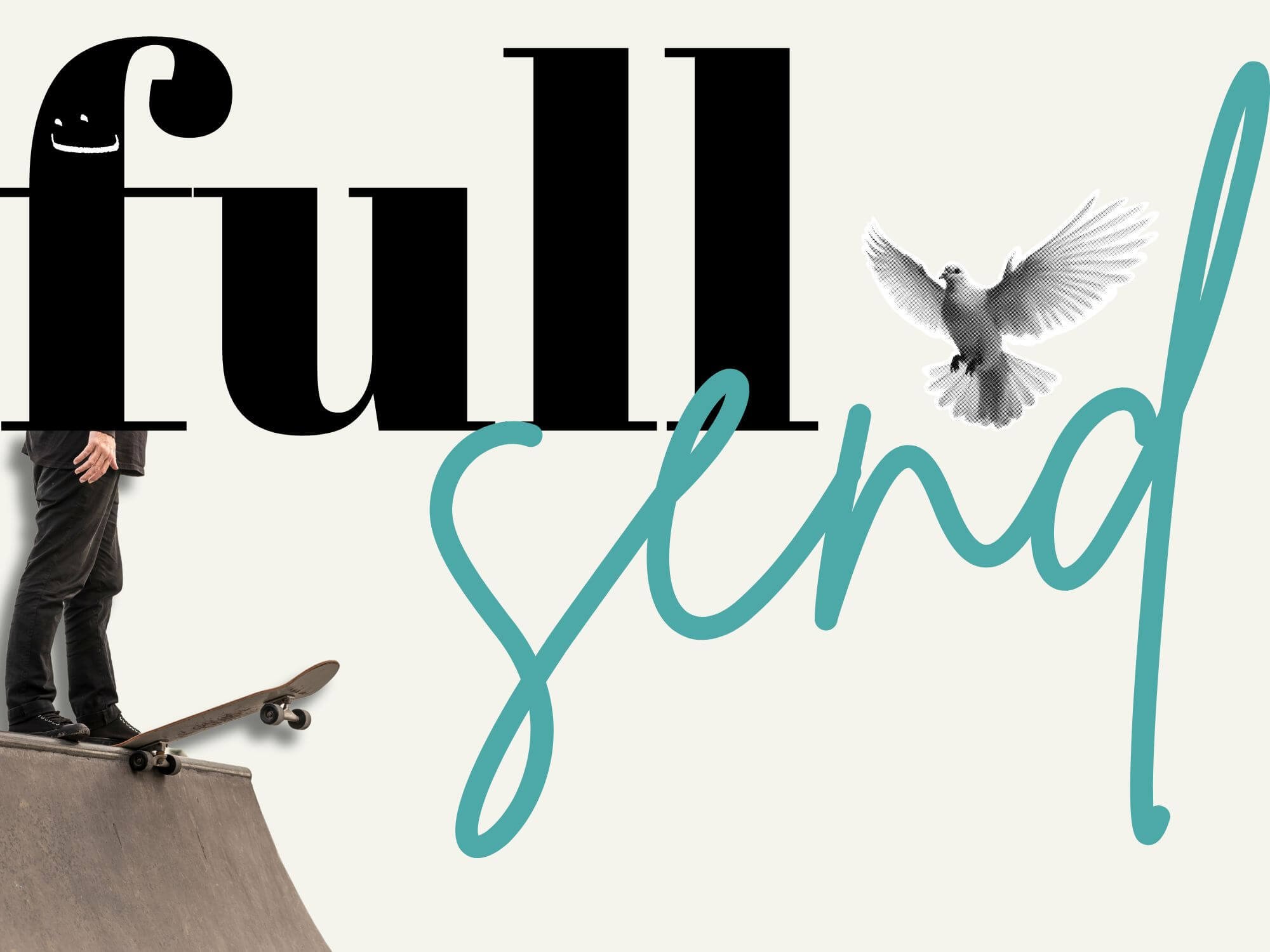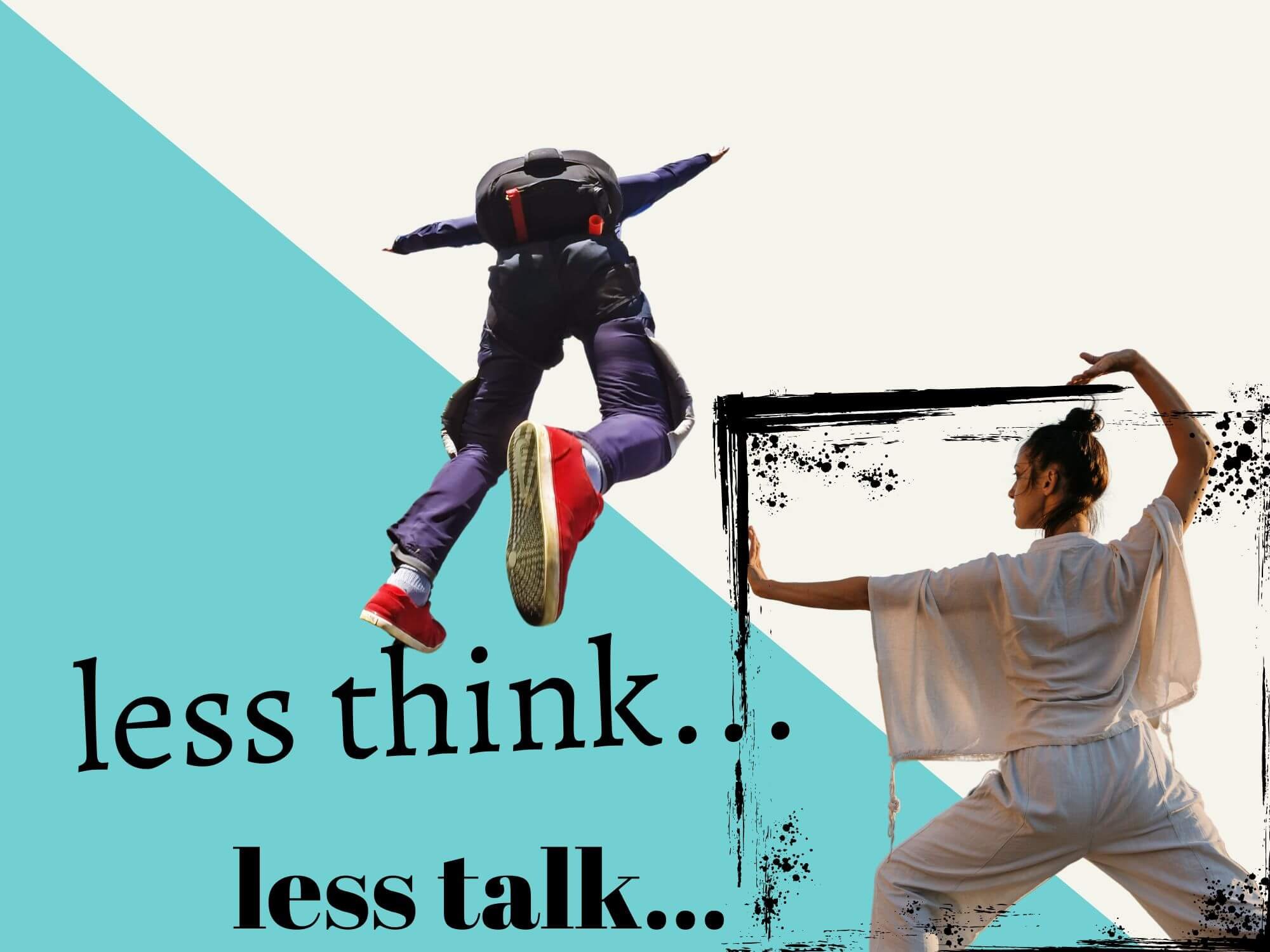Process-Oriented vs. Goal-Oriented (from a traveling artist)
I’m a musician who travels and makes videos – creativity is at the core of everything I do. And at the center of this lives an ultimate dichotomy: being process-oriented vs. goal-oriented.
Of course, I have many goals – I think most of us do. Yearly targets, monthly aims, daily tasks and even our moment-to-moment schedules…
But reaching these checkpoints is all about process.
So I’m writing about the benefits of focusing on the journey over the destination (while yes, still keeping goals top of mind).
I hope this post provides value.
These are simply the things that have helped me grow as a creative and entrepreneur – day in and day out.
So without further ado, let’s get it.
What Is Process-Oriented vs. Goal-Oriented? (definitions)
I suppose this is a reasonable jumping off point: definitions.
Processes and goals are relatively straightforward concepts, but let’s be sure we’re all on the same page for this discussion.
Being goal-oriented means you’re disproportionately more focused on the end result of your cumulative actions.
Being process oriented means you’re not outcome focused. You prioritize the journey and tend to prioritize the fun in the path toward some goal.
Of course, having longer-term goals is good (it’s usually necessary to know where we want to go), but there are key benefits to prioritizing processes over results.
So let’s explore some of those.
10 Awesome Benefits of Being Process-Oriented
It builds skills and teaches us how to overcome challenges and obstacles along the way
It makes us an expert in how to reach goals (so we can repeat the process and meet even more goals)
It strengthens patience, discipline and consistency for completing tasks and goals
It makes you more resilient and elastic in responding to changes or challenges
It’s a more sustainable mindset by creating a sense of reward and appreciation for the smaller steps and moments in life
There are no finish lines, so a focus on process is more sustainable for long-term satisfaction (at least for me)
It strengthens a growth mindset
Process allows for more mistakes and iterations, which leads to a better, more fine-tuned result
Strengthens the creative process and supports a more dynamic process, which can lead to reaching bigger and better goals than originally intended
Process exposes critical issues or points of failure to resolve in the goal
How to Become A Process-Oriented Person (6 tips I use)
Again, being goal-oriented is good too. There are benefits to both positions.
I suppose, as with so many things, the best answer lives somewhere in the middle.
But since reaching goals can take a long time, learning how to embrace the process can sometimes feel like you’re meeting part of your goal a little bit each day and week.
It’s personally more fun and motivating this way. But I digress.
These are some of my favorite tips for becoming a more process-oriented person.
1. Stop Trying to Chase More Than One Thing
Fully committing to some journey is a lot easier when you’re not trying to juggle too many of them at once.
So this is my first tip for becoming more process-oriented: isolate your focus and action to achieving just one goal at a time.
Of course, once you do reach your goal (through a processed approach), you can move on to the next one and start stacking more together.
2. Unpack Your Goal Into Its Component Pieces
Unpacking a larger goal into its smaller, component pieces is instrumental for becoming more process oriented.
Understanding the necessary steps and requirements of a macro goal will be like the roadmap to your daily action and process.
Reverse engineering your goals ends up looking something like this:
Your macro goal
The main micro goals that make up your macro goal
The main nano goals and tasks that make up each micro goal
I also sometimes use a mind map to visualize my larger music goals broken down.
But either way, understanding the smaller, next steps you need to take each day will help you stay focused on the journey – not the top of the mountain.
3. Have Realistic Time Horizons
I’ve been thinking about life truths recently (as one does…), and a couple have been standing out to me:
Perfectionism destroys creativity and impatience destroys quality.
So let’s focus on that latter one – and how it ties into time horizons.
A time horizon is the time we give ourselves to reach some goal. And giving ourselves realistic ones is essential.
While it may be true that nothing makes you more productive than the last minute, that doesn’t mean quality is guaranteed.
Whenever I rush to some finish line (even for my nano or micro goals), the quality suffers.
And when the quality suffers, it doesn’t really feel like I met the goal. I suppose quality is a core component of most meaningful goals.
So this is one of my top tips for becoming process-oriented – be patient with yourself and realistic with how long that process needs to be.
4. Aim for Quantity (not always quality)
In my view and experience, a large part of the journey should be on quantity, not quality.
Here’s what I mean.
To enjoy the process and evolution of something unfolding, we should place our focus on the journey of finding quality through numerous iterations and “failing” forward (quantity).
Being a process-oriented person means accepting the reality that a large part of the process will be made up of mistakes and learning moments.
But making these mistakes is the required path to quality. It’s the path to reaching a goal.
It’s how we improve our systems and it’s how we create a higher quality result.
There’s a famous story about a photography professor who split their class into two groups. One group was tasked with taking the highest quality photo for their semester project.
The other group was tasked with taking the highest quantity of photos for their project.
The result?
The group who focused on quantity ended up having the highest quality photos.
It’s an insightful little narrative. A focus on quality takes away the pressure of perfectionism and the quantity game is also a numbers game.
That is, the more iterations we have, the more likely one (or more) of them will be winners.
5. Gamify the Process
This tip is very top of mind for me.
You see, I’m currently in the midst of doing a song-a-day challenge – for one year. I’ve gamified my songwriting goals and process with a songwriting challenge.
It’s been super fun so far. And it’s completely changed me already.
I’m more disciplined, more patient and more process-oriented. And it’s only been around 40 days (as I write this post).
But I can already see improvements and new skills popping up.
I mean, I’m well aware that every video and song I put out isn’t exactly “a winner”. Some are even kind of embarrassing.
But with each song and video I make, I can hear, see and feel myself getting stronger and more confident.
So I’m just incredibly excited to see where I’m at after one year of songwriting, recording, producing and creating.
What’s really happening here (in this gamified challenge) is I’m creating the compound effect through daily action and habit formation.
It’s gamifying the process and I love it.
6. Mindset + Meditation
Let’s face it, the pressure we put on ourselves can be incredibly unhelpful.
But two things have been instrumental in how I deal with reaching goals and the journey it takes:
Meditation
Becoming aware of and changing my mindset has completely changed how I experience life.
And learning how to meditate has allowed me to become more calm and more patient (not to mention how it’s helped me strengthen my growth mindset).
So yea, these two things have been serious game-changers for me.
They’ve synergistically helped me become a more process-oriented person.
So if you’re unfamiliar with mindset topics or how to meditate, I definitely recommend digging deeper.
Luckily, there are numerous resources available online and for free.
If you’re interested in creativity and mindset specifically, I talk a lot about this topic and my experiences as a traveling musician and artist here on my blog.
Otherwise, here are a few other people and resources that are currently my reading list (or places I often visit):
A great place for all things mindset
He has books out, a podcast and a great YouTube channel
Has a book too (‘The Creative Act’)
*Especially a great resource for creatives
James Clear
(yep, the Guy behind that Atomic Habits book)
Long Walk to Freedom
Nelson Mandela’s book
Tim Ferris
The Art of the Long View…
A book that’s on my list, by Peter Schwartz
Want More? Check Out These Sweet Reads!





